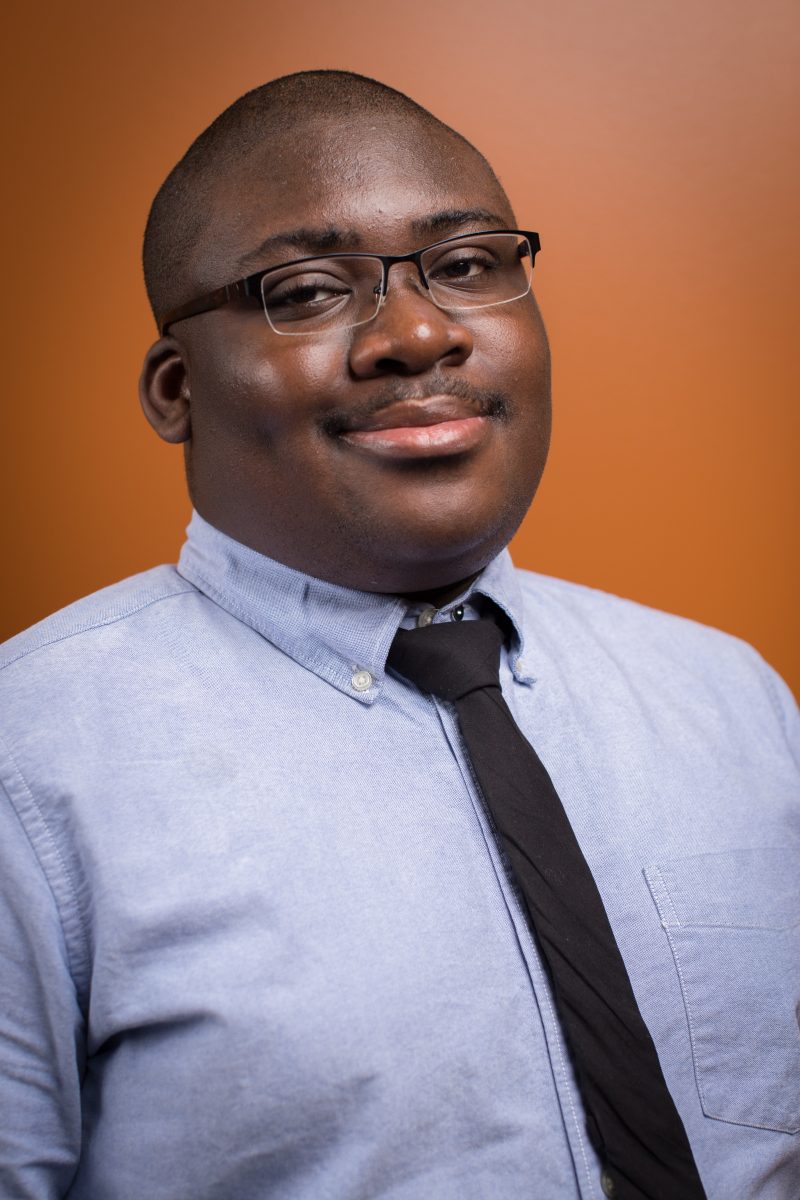The Applied Research Center (ARC) proudly announces that their own Olufunto Faweya is a finalist for Student Employee of the Year. This Biomedical Engineering student enjoys comic books, video games, and soccer in his free time, but we sat down with him for a chat about his research and daily activities at the ARC.
What got you interested in research?
Both of my parents are doctors so I have always known I wanted to do something related to helping people. Originally, I was going to go to med school but then I decided to do biomedical engineering, and then it made sense to do research. So, I came over from medicine to biomedical engineering to R&D in medical devices research and R&D in applied sciences. That’s what I am doing right now.
Why did you choose to go down the biomedical path?
I was going to go into medicine and I was going to start off with biology. My advisors, and other people I talked to, said it was much better to go in through biomedical engineering so you have a degree that you can use even if you decide not to go to medical school. That’s the route I went to but now that I’m in it I realize that I like engineering, software, coding, CAD modeling, 3D printing and just research. I like that you think of something and then you’re able to put it out into the real world from thought to actual physical product.

In layman’s terms, what are you trying to accomplish with your research?
A device that works and is able to achieve a goal that the sponsor of the project has intended to, so making sure that it works fine, that it achieves its goal and it’s able to help people in whatever method they intend to use the device.
What does a typical research day look like for you?
I come in and have whatever task is assigned to me by Dr. Jensen Newman, my supervisor, and then I fulfill those tasks, giving him regular feedback and updating him on what I have done throughout the day. When the task is finished, I might notice a couple of things like here’s what didn’t work, here’s what worked, and any improvements that I feel could be made to the task process or the design. I work on a multi-function transcranial electrical stimulation device. This might be the schematic drawing or the printed circuit board—the electrical layout of how the parts will be designed. Or, if I’m designing circuits, to either troubleshoot something or to test out what Jensen has an idea in mind of—what he wants to use—then I’ll build the circuit around that and test it to see if it works and any improvements that we can make to ensure that whatever he’s asking for that circuit we will be able to deliver to his expectations.
Any advice for students who are interested in research?
You should definitely try it. Sometimes it might start out that it might not be what you think you’d like but absolutely just go for it. It might not be something that keeps your interest but you never really know if you might like it or not. That way, once you go through it you’ll have the work experience that you can use towards a career. Plus, you’ll definitely know what you want to do and what you don’t want to do afterwards.

You must be logged in to post a comment.